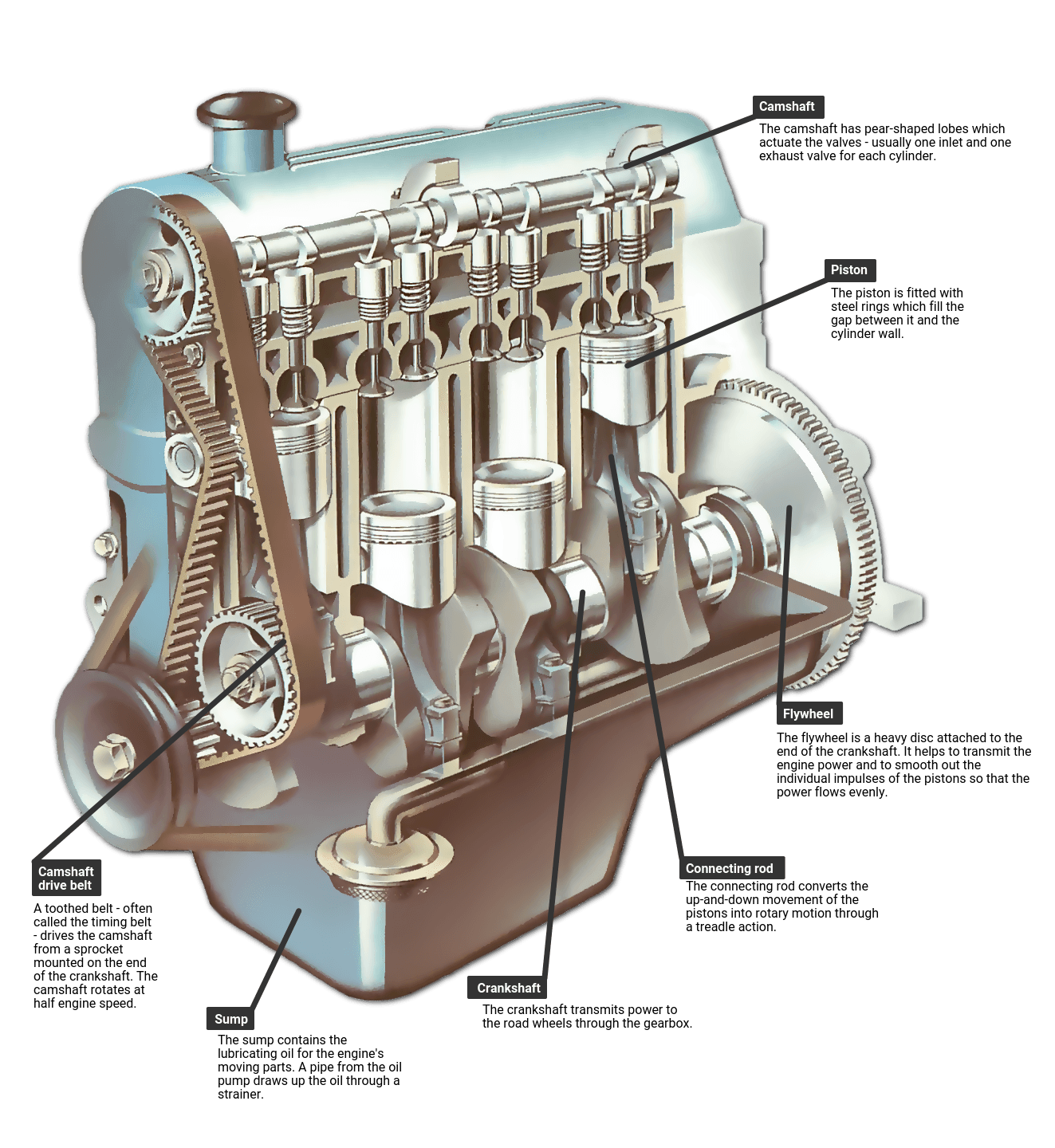Explore High Quality Options with Engines For Africa's Inventory
Wiki Article
A Complete Overview to Selecting the Right Engine for Your Project
Selecting the proper engine for your job is an essential decision that can dramatically impact its total success. It is imperative to meticulously define your project needs, assess performance needs, and take into consideration user-friendliness alongside other crucial aspects. Additionally, understanding the neighborhood assistance readily available and inspecting price ramifications can further fine-tune your selection. Each of these elements plays a pivotal duty in making certain that your selected engine not just fulfills immediate goals but likewise aligns with lasting ambitions. As we explore these considerations, you may find that the nuances of each aspect expose more than originally anticipated.Define Your Project Requirements
Defining your job needs is a crucial action in selecting the ideal engine for successful implementation. A thorough understanding of your job's objectives will certainly direct you in recognizing the capabilities and features called for from an engine. Begin by outlining the extent of your project, including the wanted performance, target market, and the specific end results you intend to achieve.
Next, take into consideration the technological requirements that line up with your task objectives. This consists of reviewing the compatibility of the engine with existing systems, as well as the programs languages and structures that will be utilized. Furthermore, analyze the degree of scalability required to suit future growth or adjustments in demand.
Spending plan restrictions likewise play a vital duty in specifying your task requires. Develop a clear financial structure to guide your decision-making process, ensuring that the engine picked fits within your budget plan while providing the required functionality.
Evaluate Efficiency Needs

Engines that support horizontal scaling are typically better for bigger applications. Furthermore, review the engine's performance under various conditions, such as peak use scenarios, to ensure it meets your reliability standards.
Think About Simplicity of Use
While technical specifications are important, the convenience of use of an engine can considerably affect the growth process and total task success. An instinctive interface, clear paperwork, and streamlined workflows can significantly lower the learning curve for developers, enabling them to focus on creative thinking and problem-solving rather than coming to grips with complex tools.When reviewing an engine's convenience of use, take into consideration the onboarding experience. A well-structured intro, complete with tutorials and sample projects, can help with a smoother change for new users. Additionally, the clarity and comprehensiveness of the engine's documents play a crucial function; detailed overviews and API referrals can encourage designers to repair and carry out functions effectively.
Another facet to consider is the engine's modification abilities. An engine that permits simple alterations can be a lot more straightforward, as developers can customize it to fit their certain needs without considerable problem. Evaluate the process integration with tools and systems you currently use. A cohesive ecological community can improve productivity and reduce friction during the development procedure. Eventually, picking an engine that focuses on convenience of use can lead to an extra satisfying and efficient growth experience.
Assess Area and Support
The toughness of an engine's community and assistance network can considerably affect a designer's experience and success. A dynamic area typically indicates a riches of common expertise, resources, and troubleshooting help that can improve your project's growth procedure. When analyzing an engine, think about the dimension and activity level of its neighborhood. Larger neighborhoods commonly offer extra discussion forums, tutorials, and third-party plugins, making it possible for programmers to locate options more effectively.Moreover, examine the availability of main support networks. Dependable documents, receptive consumer support, and regular updates are essential for attending to technical concerns and maintaining your task on course. Engines For Africa. Energetic areas likewise promote partnership, providing chances for networking and comments, which can be invaluable, specifically for independent designers or small groups
Furthermore, investigate the existence of community-run events, such as hackathons or meetups. These events can enhance your understanding of the engine while linking you with seasoned users and possible collaborators. In summary, a durable community and support system not just improve advancement but likewise produce an atmosphere for discovering and advancement, eventually improving the likelihood of your job's success.
Compare Cost and Licensing Choices
Budget plan considerations play an important role in selecting the ideal engine for your task, as site web the price and licensing choices can substantially affect both temporary expenses and long-lasting stability. Engines For Africa. Different engines offer differing rates frameworks, which can consist of one-time purchase fees, registration designs, or revenue-sharing arrangements based on your task's earnings
Licensing options likewise differ dramatically. Some engines are open-source, offering versatility and community-driven assistance, while see this others might require exclusive licenses that limit use and distribution. Recognizing the ramifications of each licensing model is essential, as it influences possession civil liberties, future scalability, and potential legal commitments.
Final Thought
Finally, choosing the ideal engine for a job requires an extensive examination of specified job demands, performance needs, convenience of usage, neighborhood support, and expense factors to consider. By systematically addressing these crucial variables, decision-makers can make certain positioning with both future and existing project demands. A knowledgeable selection ultimately enhances the possibility of job success, making it possible for efficient resource allocation and maximizing possible end results within the defined monetary visit this site right here restrictions.Choosing the appropriate engine for your task is a vital decision that can considerably affect its overall success.Defining your job needs is an essential action in picking the appropriate engine for effective implementation. A comprehensive understanding of your job's purposes will direct you in determining the attributes and capacities needed from an engine.Once you have a clear understanding of your job needs, the following action is to evaluate the efficiency requirements of the engine.In final thought, picking the appropriate engine for a task necessitates a thorough evaluation of defined task needs, efficiency demands, convenience of usage, area support, and price considerations.
Report this wiki page